Extension Foundation Online Campus
Resultados de la búsqueda: 38
Veterans Agricultural Education and Apprenticeship Program in the Southwest
Course Name: 2024 Southwest Ag Summit
Fertilizer Management in the Desert Southwest
Module 1: Fertilizer Considerations for the Desert Southwest
Robert Masson, University of Arizona, Yuma County Cooperative Extension, Asst. AG Agent
Module 2: TRUE Organic Product Updates
Ramy Colfer, Cody Benton, and Jay Harper of TRUE Organic Products
Module 3: YARA Products Updates
Patrick Giannetti and Sebastian Korob, YARA International
Module 4: Nutrient Ag Solutions Product Update
Kyle Deol, Nutrient Ag Solutions
The course contains video so it requires a computer that can play audio and video.
Contact and technical support: Robert Masson, masson@arizona.edu.
- Teacher: Don Dinwiddie
- Teacher: Robert Masson
Veterans Agricultural Education and Apprenticeship Program in the Southwest
Course Name: 2024 Southwest Ag Summit
How Weather and Water Influence Pest Management
Module #1: Influence of Weather on Desert Insects and their Management
Dr. John Palumbo, University of Arizona, Yuma, AZ
Module #2: Water Management and Pest Management - What's the Connection?
Dr. Shaku Nair, University of Arizona, Maricopa County Cooperative Extension
The course contains video so it requires a computer that can play audio and video.
Contact and technical support: Robert Masson, masson@arizona.edu.
- Teacher: Don Dinwiddie
- Teacher: Robert Masson
Veterans Agricultural Education and Apprenticeship Program in the Southwest
Course Name: 2024 Southwest AG Summit
Plant Breeding Short Course: Theory, Methods, and Plant Breeding Industry
Module 1:
Plant Breeding 101:
Robert Masson, University of Arizona, Yuma Co. Cooperative Extension
Module 2:
Plant Breeding 102:
Dr. Hikmet Budak, Agricultural Professor, Arizona Western College
The course contains video so it requires a computer that can play audio and video.
Contact and technical support: Robert Masson, masson@arizona.edu.
- Teacher: Don Dinwiddie
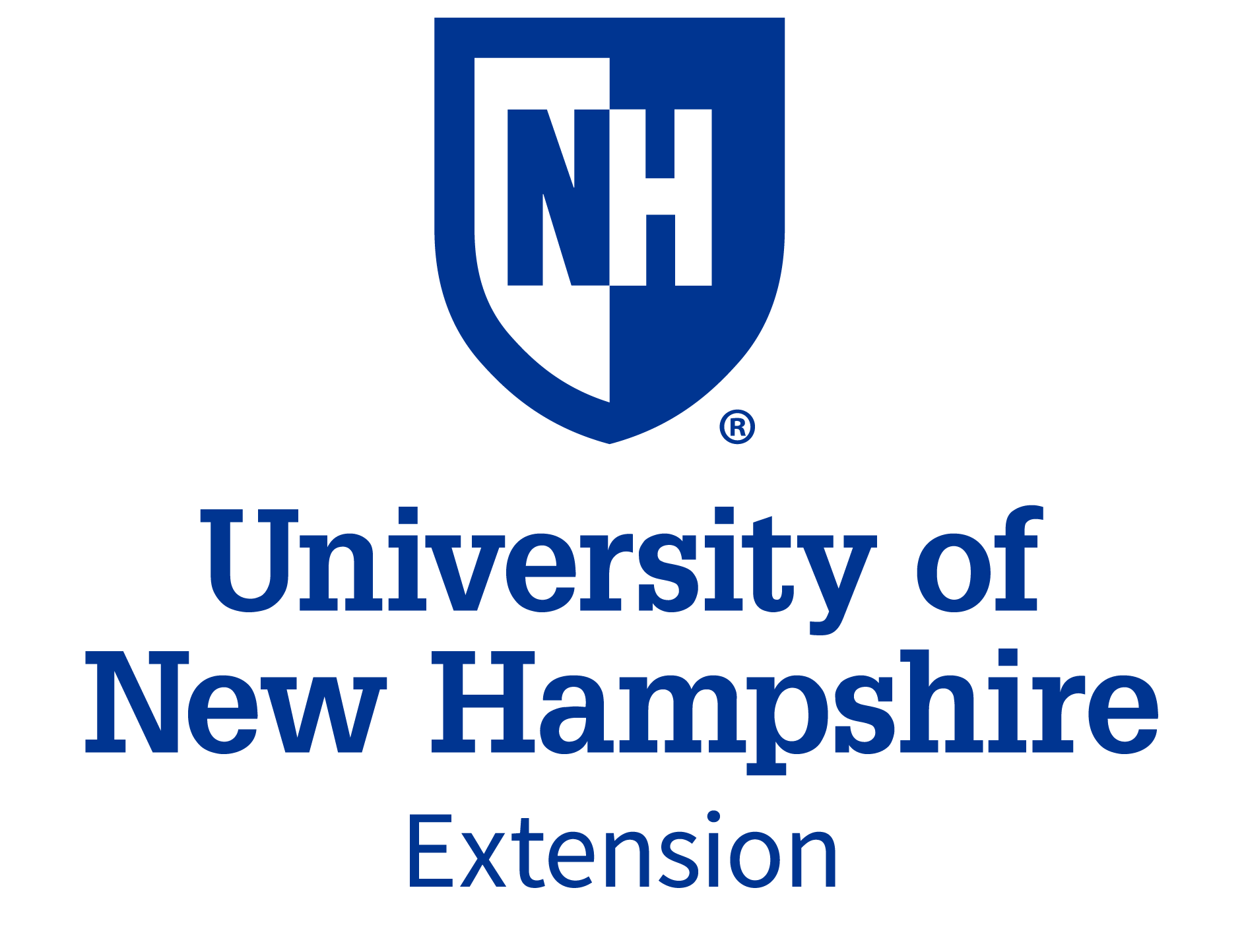
By taking this course, students will learn:
The Worker Protection Standard (WPS) is a regulation developed by the United States Environmental Protection Agency (EPA) to protect workers and handlers from the harmful effects of pesticides and their residues. The standard went through some major
revisions in 2015 and this course will reflect those changes.
This course will cover some of the major points of the Worker Protection Standard and what employers need to cover with their employees in order to comply.
Once you've completed this course, you should be able to:
- Define a worker and a handler
- Understand the importance of the WPS
- Know when compliance is necessary
- Identify the basic requirements needed by both a worker and handler to reduce their pesticide exposure
Watch the presentation from beginning to end. There are review questions interspersed to help you review the information. When you feel you are comfortable with the information, take the final assessment below Jeopardy game.
For more information please contact Rachel Maccini, Pesticide Safety Education Program Coordinator, University of New Hampshire, Cooperative Extension.
The fee for the course is $40. To purchase and enroll in the course, click the following button:
- Teacher: Rachel Maccini


About the Course:
This course is for program directors, coordinators, staff or anyone directly involved in working with volunteers.
Upon completion of this course, learners should be able to:
- Describe the benefits volunteers provide to programs and organizations
- Identify the roles and responsibilities of those involved in working with volunteers
- Identify the characteristics of an effective volunteer program
- Use the 7-step ISOTURE model to help build volunteer engagement
Along the way, learners will assess their own program, using self-guided activities and resources and develop a volunteer engagement action plan.
|
California Cooperative Extension Staff |
Free with enrollment key (contact your State Coordinator for enrollment key)
|
|
|
|
|
Non-California Users |
|
|
1-4 Seats |
$30 each |
|
5-49 Seats |
$25 each |
|
50-99 Seats |
$20 each |
|
100 or more Seats |
$10 each |
Contact:
For more information or to enroll please contact:
- Gemma Miner, UC ANR, Academic Coordinator for Volunteer Engagement gmminer@ucanr.edu
- UC ANR Course Support, idevelopsupport@ucanr.edu
- ANR Administrator: Zeva Cho
- ANR Administrator: CA 4-H eXtension Tech Support
- ANR Administrator: Scott Mautte
- ANR Administrator: Gemma Miner
- ANR Administrator: Lauren Snowden
The audience for this Buying a Tractor course is Farmers and land owners who are interested in learning how to select the correct tractor for the intended purpose.
For more information or to enroll please contact: Mark Hall, Auburn University/ Alabama Cooperative Extension System, at hallmah@auburn.edu
- Teacher: John Fulton
Certified Biomass Procurement Specialist – Short Rotation Woody Crops is an online course for anyone interested in growing trees in a plantation. In this course participants will learn about pine, popular and cottonwood trees and how each preforms in different environments.
For more information contact Mark Hall, Alabama Cooperative Extension System, hallmah@auburn.edu
For technical assistance please contact campushelp@extension.org
- Teacher: John Fulton
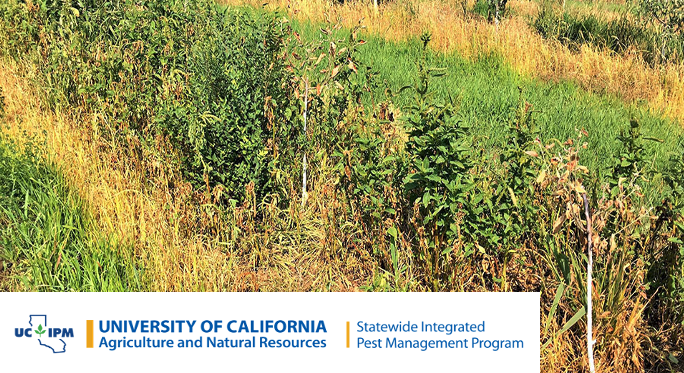

This course provides a rare opportunity for professionals to gain understanding of how an herbicide injury situation can arise and to efficiently update their background knowledge of herbicide characteristics in relation to different damage patterns. The goal of this course is to provide learners with a basic guide to approach diagnosing and investigating crop injury situations known or suspected to be related to herbicides, while giving them the tools to facilitate the investigation process. This course is available for free for those who do not need Continuing Education Units. The authors of the course are Dr. Brad Hanson, Professor of Cooperative Extension UC Davis and Dr. Kassim Al-Khatib, Professor of Plant Sciences, UC Davis.
Who should enroll?
Growers, pest control advisers, sales representatives for chemical companies, field investigators, and insurance adjusters
Continuing Education Units
California Department of Pesticide Regulation (1.5 hours Other) and Certified Crop Adviser (1.5 IPM).
To get the Continuing Education Units certificate you will be charged a fee of $30. To encourage taking the course earlier in the year, we offer 50% off the regular price from January through October 31st – use the code ipm50 at checkout. You must download the certificate (PDF file) to receive your CEU credits.
Enrollment period
This course must be completed by December 30 of the current year. Download the certificate immediately when you complete the course. You will not be able to retrieve your certificate after December 30.
- Technical support: UC IPM Online Training Support
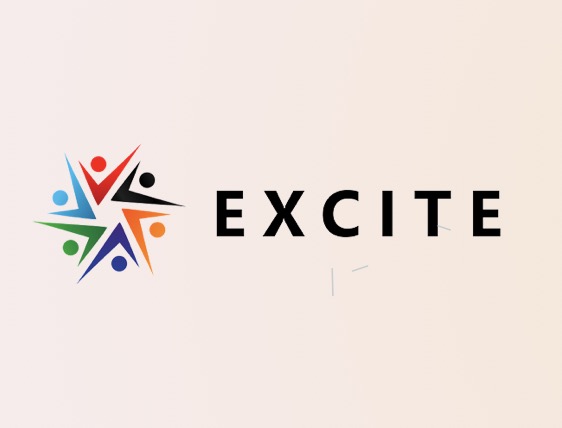
This course will strengthen Extension and healthcare professionals’ ability to evaluate health-related media messages, recognize misinformation, and support community members in making informed health decisions.
This course is part of the Vaccine Education series created by Clemson University Cooperative Extension.
Other courses in this series include:- Getting Started: Vaccine Education Onboarding
- The Science of Vaccination
- The Critical Role of Extension Agents & Vaccine Education at the National Level
- Communication Strategies and Motivation Interviewing
- Motivational Interviewing Case Studies
- Neuromarketing Strategies for Brain-Friendly Health Messaging in Extension Outreach

- Teacher: Molly Immendorf
- Teacher: Lisa Linfield

In this course, you will learn how vaccines work to protect individuals and communities, gain insights into the rigorous regulatory processes ensuring vaccine safety, and review evidence supporting vaccine effectiveness.
This course is part of the Vaccine Education series created by Clemson University Cooperative Extension.
Other courses in this series include:- Getting Started: Vaccine Education Onboarding
- Vaccination as a Priority
- The Science of Vaccination
- The Critical Role of Extension Agents & Vaccine Education at the National Level
- Motivational Interviewing Case Studies
- Neuromarketing Strategies for Brain-Friendly Health Messaging in Extension Outreach
- Health Media Literacy

- Teacher: Molly Immendorf
- Teacher: Lisa Linfield

This is an introductory course for the Vaccine Education series created by Clemson University Cooperative Extension.
Other courses in this series include:
- Vaccination as a Priority
- The Science of Vaccination
- The Critical Role of Extension Agents & Vaccine Education at the National Level
- Communication Strategies and Motivational Interviewing
- Motivational Interviewing and Case Studies
- Neuromarketing Strategies for Brain-Friendly Health Messaging in Extension Outreach
- Health Media Literacy

- Teacher: Molly Immendorf
- Teacher: Lisa Linfield

In this course, you will explore motivational interviewing techniques through practical case studies focused on vaccination discussions.
This course is part of the Vaccine Education series created by Clemson University Cooperative Extension.
Other courses in this series include:- Getting Started: Vaccine Education Onboarding
- Vaccination as a Priority
- The Science of Vaccination
- The Critical Role of Extension Agents & Vaccine Education at the National Level
- Communication Strategies and Motivational Interviewing
- Neuromarketing Strategies for Brain-Friendly Health Messaging in Extension Outreach
- Health Media Literacy

- Teacher: Molly Immendorf
- Teacher: Lisa Linfield

In this course, you will learn how neuromarketing principles can transform your outreach.
This course is part of the Vaccine Education series created by Clemson University Cooperative Extension.
Other courses in this series include:- Getting Started: Vaccine Education Onboarding
- Vaccination as a Priority
- The Science of Vaccination
- The Critical Role of Extension Agents & Vaccine Education at the National Level
- Communication Strategies and Motivation Interviewing
- Motivational Interviewing Case Studies
- Health Media Literacy

- Teacher: Molly Immendorf
- Teacher: Lisa Linfield

In this course, you will learn how you can become vital contributors to vaccination education efforts by doing what you already do so well.
This course is part of the Vaccine Education series created by Clemson University Cooperative Extension.
Other courses in this series include:- Getting Started: Vaccine Education Onboarding
- Vaccination as a Priority
- The Science of Vaccination
- Communication Strategies and Motivation Interviewing
- Motivational Interviewing Case Studies
- Neuromarketing Strategies for Brain-Friendly Health Messaging in Extension Outreach
- Health Media Literacy

- Teacher: Molly Immendorf
- Teacher: Lisa Linfield

In this course, you will learn how vaccines work to protect individuals and communities, gain insights into the rigorous regulatory processes ensuring vaccine safety, and review evidence supporting vaccine effectiveness.
This course is part of the Vaccine Education series created by Clemson University Cooperative Extension.
Other courses in this series include:- Getting Started: Vaccine Education Onboarding
- Vaccination as a Priority
- The Critical Role of Extension Agents & Vaccine Education at the National Level
- Communication Strategies and Motivation Interviewing
- Motivational Interviewing Case Studies
- Neuromarketing Strategies for Brain-Friendly Health Messaging in Extension Outreach
- Health Media Literacy

- Teacher: Molly Immendorf
- Teacher: Lisa Linfield

In this course, you will learn about vaccine hesitancy, the significance of community immunity, and recent vaccination development.
This course is part of the Vaccine Education series created by Clemson University Cooperative Extension.
Other courses in this series include:- Getting Started: Vaccine Education Onboarding
- The Science of Vaccination
- The Critical Role of Extension Agents & Vaccine Education at the National Level
- Communication Strategies and Motivation Interviewing
- Motivational Interviewing Case Studies
- Neuromarketing Strategies for Brain-Friendly Health Messaging in Extension Outreach
- Health Media Literacy

- Teacher: Molly Immendorf
- Teacher: Lisa Linfield
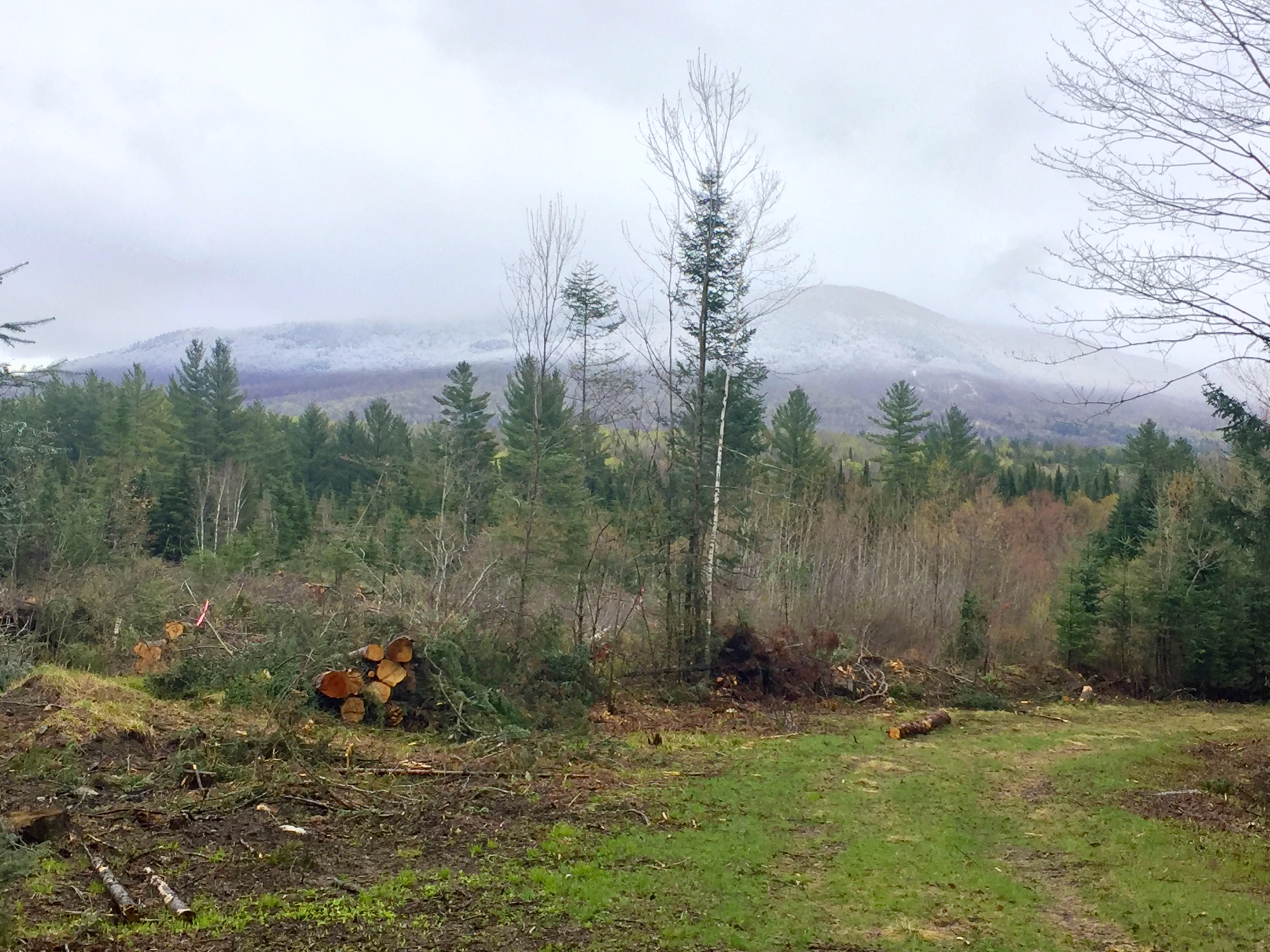
This course encompasses all of the presentations from the 2023 NER.COFE Workshop. Each topic corresponds to each of the individual presentations and are approved for Category 1 Forester Licensing credits by both SAF and the State of Maine as described with each course.
The cost for each topic is $10.00/0.5 CEU which is to cover recording, processing, and online fees, and will continue to support the NER.COFE organization as the in-person workshop does.
Any questions may be forwarded to:
Ray Berthiaume, NER.COFE Chair, UNH Cooperative Extension Field Specialist, Coos County Forester
- Teacher: Raymond Berthiaume
- Teacher: andrew fast
Forest Farming Online is designed to train technical service providers (e.g., service foresters with government agencies, Extension professionals, forest management consultants), but is freely available to the public. This course begins with one introductory module, which you must complete first. It includes information pertaining to the basics of forest farming and takes approximately one hour to complete. A series of video and webinar clips from the coalition’s YouTube and webinar library have been compiled to present key forest farming considerations such as, what is it?, how do you do it?, what crops are popular?, how do you add value?, etc. Questions are included for you to complete along the way. Module 1 is expected to take approximately one hour to complete and it guides users to videos that follow a specific list of topics in the curriculum. Questions are linked to specific videos or video segments within topics in the outline. You should plan on spending about 20 minutes per topic.
For more information contact:
John Munsell, Virginia Tech/Virginia Cooperative Extension, jfmunsel@vt.edu
Brent Peterson SREF/UGA, bpeterson@sref.info
William Hubbard SREF/UGA whubbard@sref.info
- Teacher: Leslie Boby
UVM Extension Northwest Crops and Soils (NWCS) program is offering this course in collaboration with the following organizations: Vermont Agency of Agriculture (VAAFM), Food & Markets, Massachusetts Department of Agricultural Resources (MDAR), SUNY Morrisville, University of Maine Cooperative Extension, Maine Organic Farmers and Gardeners (MOFGA), Northeast Organic Farming Association of NY (NOFA-NY), and Northeast Sustainable Agriculture Research and Education program (NE-SARE).
Offerings include up to 13 webinars (7 are required), up to 5 in-field intensives (1 is required), and admission to attend the 2021 and 2022 Industrial Hemp Conferences! You will also be asked to complete a Pre- and Post- Training Survey. All this is FREE and you can also earn Certified Crop Adviser credits! Webinar trainings will be live on Tuesdays, 12pm to 1pm. Please note that this training is offered for Agricultural and Technical Service Providers.
- Teacher: Susan Brouillette
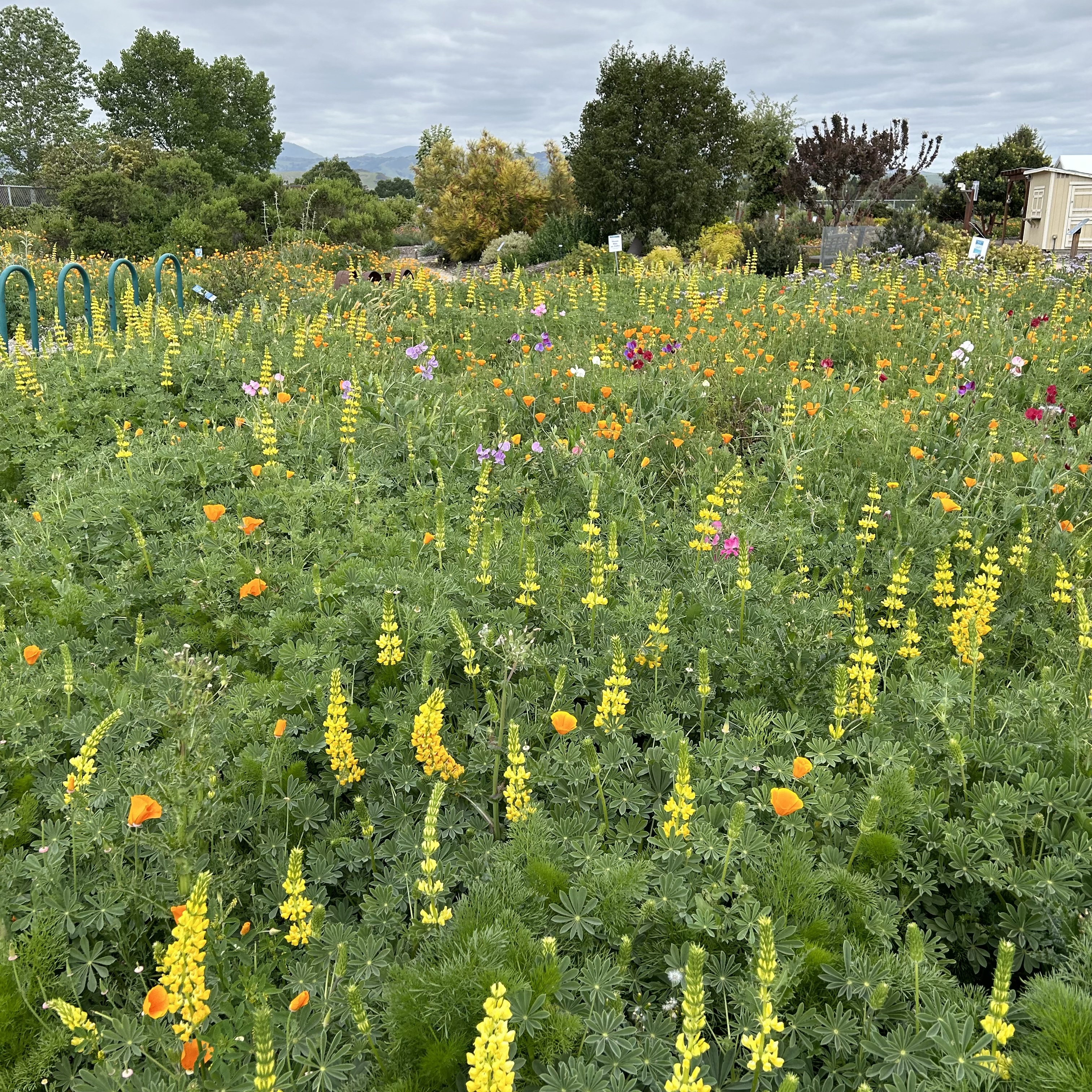
Welcome to UC Master Gardener Program of Santa Clara County Initial Training 2025. This course is offered by UC Cooperative Extension through the Master Gardener Program.
The UC Master Gardener Training is designed to enrich your horticultural knowledge so that you can provide unbiased, science-based information to residents of Santa Clara County. The training will cover topics such as soil and plant nutrition; irrigation; weed, insect, and disease management; fruit and vegetable production; sustainable landscaping; and pesticide use alternatives. We will also have units on the use of scientific sources, principles of adult learning, and community engagement.
By the end of the training, you will 1) have a strong foundation in the fundamentals of gardening, 2) know how to find science-based information to answer gardening questions, 3) have an understanding of how to engage and educate members of the Santa Clara County community, and 4) be familiar with the structure and function of the UC Master Gardener program of Santa Clara County. With these skills and knowledge, you will be equipped to share science-based information on home horticulture, pest management, and sustainable landscape practices with the public through the many organized volunteer activities the UC Master Gardeners of Santa Clara County have to offer.
Each class is taught by a different guest instructor. Instructors include University of California academics, faculty from other local colleges, staff from community organizations, and other Master Gardener volunteers.
- Facilitator: Lucy Diekmann
- Facilitator: Sarah Farley
- Facilitator: Katherine Uhde
- Facilitator: Jenel Vincze
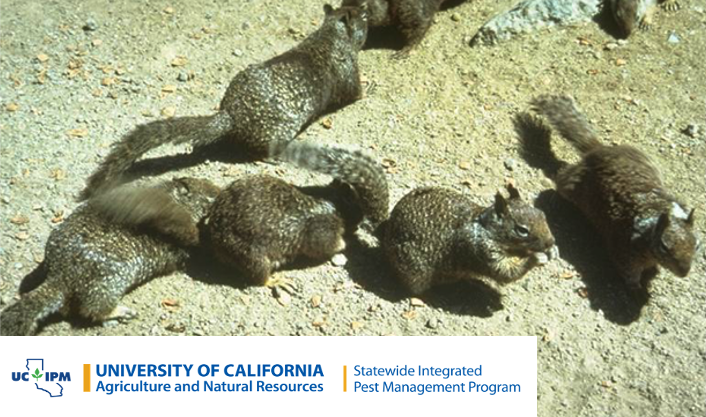

Pest management professionals and growers
- Technical support: UC IPM Online Training Support


This course covers the description, biology, and ecology of voles, rats, and mice as well as an overview of available nonchemical control options including biocontrol, habitat modification, trapping, and exclusion. Also included are chemical control methods such as baiting and fumigants. In addition, the idea of fertility control is mentioned. The author of the course is Dr. Roger Baldwin, UC Cooperative Extension Specialist: Human-Wildlife Conflict Resolution.
- Technical support: UC IPM Online Training Support
This online course is the National Worker Protection Standard: Web-Based Training for Trainers of Agricultural Workers and Pesticide Handlers. The course was developed by the Pesticide Educational Resources Collaborative (PERC) through a cooperative agreement (agreement #X8-83616301) between the U.S. Environmental Protection Agency’s (EPA) Office of Pesticide Programs and the University of California Davis Continuing and Professional Education, in collaboration with Oregon State University. Approval number EPA WPS TTT W/H 00030-0725.
This course provides the information required to train those who will train agricultural workers and pesticide handlers under the U.S. EPA Worker Protection Standard (WPS). It will guide you through the necessary procedures to provide agricultural workers and pesticide handlers with required information on how to avoid exposure to pesticides and pesticide residue.
Completion of this course certifies you as a qualified WPS trainer of agricultural workers and pesticide handlers in the continental U.S., Alaska, Hawaii, Puerto Rico, Guam, and the U.S. Virgin Islands. Some states require state-specific training and this course alone would not qualify. Before enrolling, you must check with your state or tribal pesticide regulatory agency to verify possible additional requirements. Note: this course will NOT satisfy the train the trainer requirements in California for the California Department of Pesticide Regulation. It will NOT satisfy the train the trainer requirements in Arizona for the Arizona Department if Agriculture. You must contact them directly to get a list of courses that will.
Each year, a new offering of the current course will be posted. This will allow students to retake the course as needed by employers and regulatory agencies. Previous year’s offering will be available on the student’s profile should they need to access to an older certificate. Note that the content will be identical each year, unless otherwise noted that there was a course revision.System Requirements
Computer: Strongly recommended: Mac OSX 10.9 or higher or a PC running Windows 7 or higher.
Browser: Strongly recommended: Google Chrome or Mozilla Firefox. Strongly discouraged: Browsers other than those listed above. Others may work but have experienced performance issues in testing (e.g., Internet Explorer, Microsoft Edge, etc.) eXtension is not able to respond to troubleshooting inquiries if customers are using a non-recommended browser.
Audio: This course contains audio narration. To hear the narration, your computer will either need audio speakers built-in or attached. You can also listen to the audio via headphones.
For questions about the course content, contact PERCsupport@ucdavis.edu.
For questions about technical support (e.g., enrolling, payments, etc.) contact cataloghelp@extension.org.
To enroll, see below.Course Completion Checklist
- Complete the modules in order (12)
- Complete the Knowledge Checks for each module (12)
- Take the Final Exam (must score 70% to pass)
- Complete the evaluation
- Download certificate
- Submit your certificate. You are responsible for identifying and submitting your certificate to appropriate entities.
The enrollment fee for this course is $75. To purchase and enroll in this course, click here:
No Refund Policy – Unless the course is not accessible using one the required operating system(s) or browser(s), then PERC will not issue a refund. If you have any questions about our No Refund Policy, please contact us at percsupport@ucdavis.edu.
- Teacher: Suzanne Forsyth
- Teacher: Christian Gella
- Teacher: Hannah Moore
This course is no longer accepting enrollments.
This online course is the National Worker Protection Standard: Web-Based Training for Trainers of Agricultural Workers and Pesticide Handlers. The course was developed by the Pesticide Educational Resources Collaborative (PERC) through a cooperative agreement (agreement #X8-83616301) between the U.S. Environmental Protection Agency’s (EPA) Office of Pesticide Programs and the University of California Davis Continuing and Professional Education, in collaboration with Oregon State University. Approval number EPA WPS TTT W/H 00030.
This course provides the information required to train those who will train agricultural workers and pesticide handlers under the U.S. EPA Worker Protection Standard (WPS). It will guide you through the necessary procedures to provide agricultural workers and pesticide handlers with required information on how to avoid exposure to pesticides and pesticide residue.
Completion of this course certifies you as a qualified WPS trainer of agricultural workers and pesticide handlers in the continental U.S., Alaska, Hawaii, Puerto Rico, Guam, and the U.S. Virgin Islands. Some states require state-specific training and this course alone would not qualify. Before enrolling, you must check with your state or tribal pesticide regulatory agency to verify possible additional requirements. Note: this course will not satisfy the train the trainer requirements in California for the California Department of Pesticide Regulation. You must contact them directly to get a list of courses that will.
Each year, a new offering of the current course will be posted. This will allow students to retake the course as needed by employers and regulatory agencies. Previous year’s offering will be available on the student’s profile should they need to access to an older certificate. Note that the content will be identical each year, unless otherwise noted that there was a course revision.
System Requirements
Computer: Strongly recommended: Mac OSX 10.9 or higher or a PC running Windows 7 or higher.
Browser: Strongly recommended: Google Chrome or Mozilla Firefox. Strongly discouraged: Browsers other than those listed above. Others may work but have experienced performance issues in testing (e.g., Internet Explorer, Microsoft Edge, etc.) eXtension is not able to respond to troubleshooting inquiries if customers are using a non-recommended browser.
Audio: This course contains audio narration. To hear the narration, your computer will either need audio speakers built-in or attached. You can also listen to the audio via headphones.
For questions about the course content, contact PERCsupport@ucdavis.edu.
For questions about technical support (e.g., enrolling, payments, etc.) contact cataloghelp@extension.org.
To enroll, see below.Course Completion Checklist
- Complete the modules in order (12)
- Complete the Knowledge Checks for each module (12)
- Take the Final Exam (must
score 70% to pass)
- Complete the evaluation
- Download certificate
- Submit your certificate. You
are responsible for identifying and submitting your certificate to appropriate
entities.
The enrollment fee for this course is $35. To purchase and enroll in this course, click here:
No Refund Policy – Unless the course is not accessible using one the required operating system(s) or browser(s), then PERC will not issue a refund. If you have any questions about our No Refund Policy, please contact us at percsupport@ucdavis.edu.
- Teacher: Suzanne Forsyth
- Teacher: Hannah Moore
This course is no longer accepting new registrations.
This online course is the National Worker Protection Standard: Web-Based Training for Trainers of Agricultural Workers and Pesticide Handlers. The course was developed by the Pesticide Educational Resources Collaborative (PERC) through a cooperative agreement (agreement #X8-83616301) between the U.S. Environmental Protection Agency’s (EPA) Office of Pesticide Programs and the University of California Davis Continuing and Professional Education, in collaboration with Oregon State University. Approval number EPA WPS TTT W/H 00030.
This course provides the information required to train those who will train agricultural workers and pesticide handlers under the U.S. EPA Worker Protection Standard (WPS). It will guide you through the necessary procedures to provide agricultural workers and pesticide handlers with required information on how to avoid exposure to pesticides and pesticide residue.
Completion of this course certifies you as a qualified WPS trainer of agricultural workers and pesticide handlers in the continental U.S., Alaska, Hawaii, Puerto Rico, Guam, and the U.S. Virgin Islands. Some states require state-specific training and this course alone would not qualify. Before enrolling, you must check with your state or tribal pesticide regulatory agency to verify possible additional requirements. Note: this course will not satisfy the train the trainer requirements in California for the California Department of Pesticide Regulation. You must contact them directly to get a list of courses that will.
Each year, a new offering of the current course will be posted. This will allow students to retake the course as needed by employers and regulatory agencies. Previous year’s offering will be available on the student’s profile should they need to access to an older certificate. Note that the content will be identical each year, unless otherwise noted that there was a course revision.
System Requirements
Computer: Strongly recommended: Mac OSX 10.9 or higher or a PC running Windows 7 or higher.
Browser: Strongly recommended: Google Chrome or Mozilla Firefox. Strongly discouraged: Browsers other than those listed above. Others may work but have experienced performance issues in testing (e.g., Internet Explorer, Microsoft Edge, etc.) eXtension is not able to respond to troubleshooting inquiries if customers are using a non-recommended browser.
Audio: This course contains audio narration. To hear the narration, your computer will either need audio speakers built-in or attached. You can also listen to the audio via headphones.
For questions about the course content, contact PERCsupport@ucdavis.edu.
For questions about technical support (e.g., enrolling, payments, etc.) contact cataloghelp@extension.org.
To enroll, see below.Course Completion Checklist
- Complete the modules in order (12)
- Complete the Knowledge Checks for each module (12)
- Take the Final Exam (must
score 70% to pass)
- Complete the evaluation
- Download certificate
- Submit your certificate. You
are responsible for identifying and submitting your certificate to appropriate
entities.
No Refund Policy – Unless the course is not accessible using one the required operating system(s) or browser(s), then PERC will not issue a refund. If you have any questions about our No Refund Policy, please contact us at percsupport@ucdavis.edu.
- Teacher: Suzanne Forsyth
- Teacher: Hannah Moore
The Manure Composting course comes to you from the Animal Science Program at Rutgers Cooperative Extension with help from their friends at the Office of Continuing Professional Education.
- Teacher: Brian Warzak
The Manure Composting course comes to you from the Animal Science Program at Rutgers Cooperative Extension with help from their friends at the Office of Continuing Professional Education.
- Teacher: Brian Warzak
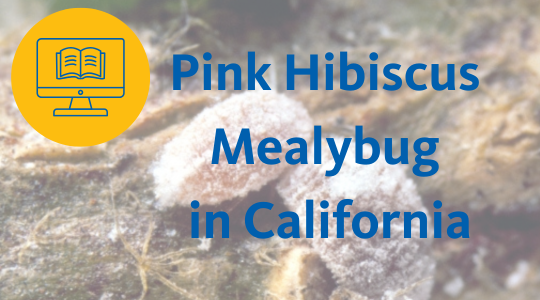
Course overview
The pink hibiscus mealybug (Maconellicoccus hirsutus) is an invasive insect that is currently in California and has the potential to have a profound impact on our agriculture and natural environment. A key to slowing the spread of pink hibiscus mealybug is early detection and rapid response, which requires education of citizens and resource professionals. This course explores the pest's lifecycle, how they feed, travel and what to do if you see it in California.
Who should enroll?
Residents of California, Master Gardeners, Arborists, Nursery Professionals, and other stakeholders.
How to enroll
Continuing Education Units
- UC Master Gardeners are eligible for 1 hour of continuing education (CE) for completing this course.
Need Help?
- For assistance with login, course enrollment, contact campushelp@extension.org
- For assistance with progress through the course or certificate, contact mgtraining@ucanr.edu
The California Department of Agriculture and the University of California Master Gardener Program.
Teacher
Lauren Snowden, UC Master Gardener Online Training Specialist

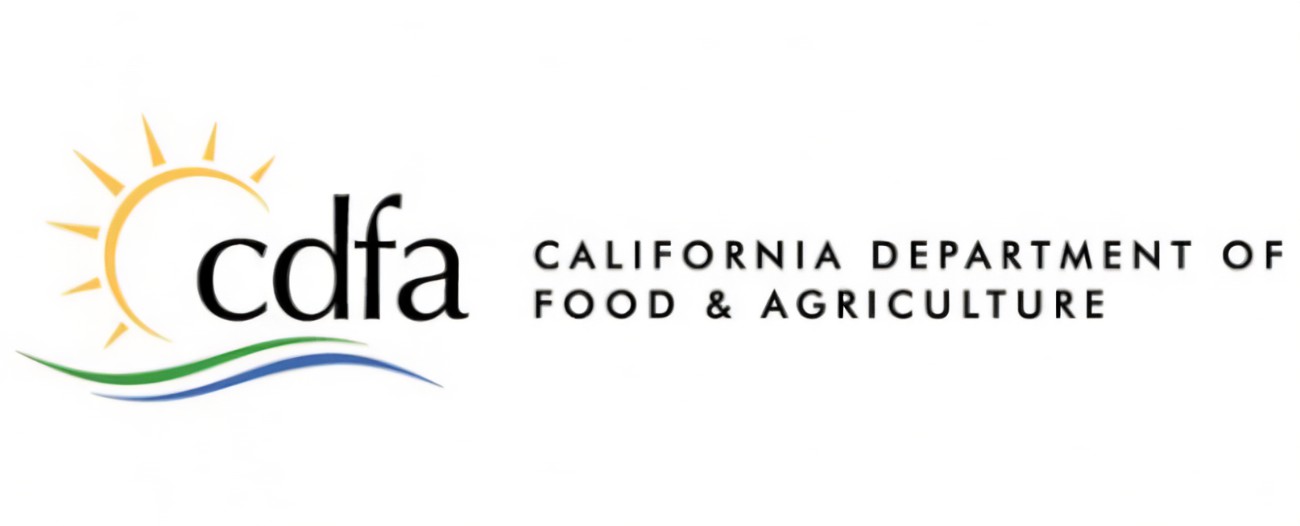
The University of California Division of Agriculture & Natural Resources (UCANR) is an equal opportunity provider. (Complete nondiscrimination policy statement can be found at (pdf, opens in another window) http://ucanr.edu/sites/anrstaff/files/215244.pdf)
Inquiries regarding ANR’s nondiscrimination policies may be directed to UCANR, Affirmative Action Compliance Officer, University of California, Agriculture and Natural Resources, 2801 Second Street, Davis, CA 95618, (530) 750-1343.
_______
The material and information presented here are for general education and information purposes only and do not constitute technical advice relating to individual and site-specific issues. Reach out to the University of California (UC) Cooperative Extension office in your county for unbiased, research-based solutions. Any reference to commercial products, companies, and organizations does not imply an endorsement by The Regents of the UC.
- Teacher: UC Master Gardener Online Training Support
- Teacher: Lauren Snowden
Learn to utilize common and effective tools and practices to improve communication and employee performance on your farm. In part-one of this workshop, you’ll also learn how to use an online Personnel Policy Generator to develop a custom policy manual for your operation. Farm policy manuals are effective tools to establish consistent expectations with employees, support supervision and help your farm to be in legal compliance. Participants will have the opportunity to create their own farm policy manual, with feedback from educators.
Presenters: Kenesha Reynolds and Seth Wilner, University of New Hampshire Cooperative Extension.
The workshop is part of the 2022 Farm Labor Dashboard Workshop Series, which focuses on helping farmers build practical labor management knowledge and skills.
Fees. The workshop fee is $35. To purchase and enroll in the course, click the following button:
Scholarships and multi-session discounts are available, reducing the workshop fee to $20. However, these options are only available for people who request – and receive approval – for reduced fees in advance of registration and payment. To request either a multi-session discount or scholarship, please fill out this online form. Then wait to register until you hear back from us via email. Decisions are generally made within 3 business days. If you are approved, you will receive a voucher code that you will use during the registration/payment process to activate a reduced registration fee for the workshops you indicated you wish to enroll in.- Instructor: Beth Holtzman
- Instructor: Mary Peabody
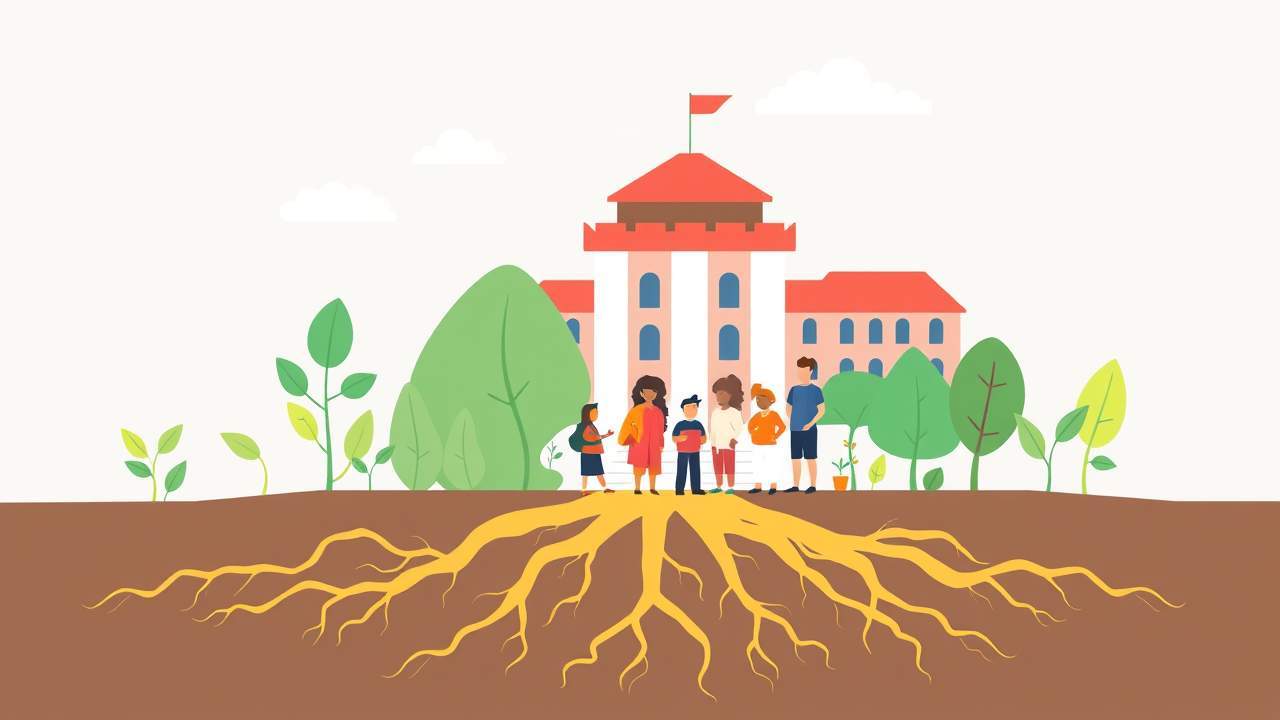
- Teacher: Lisa Linfield
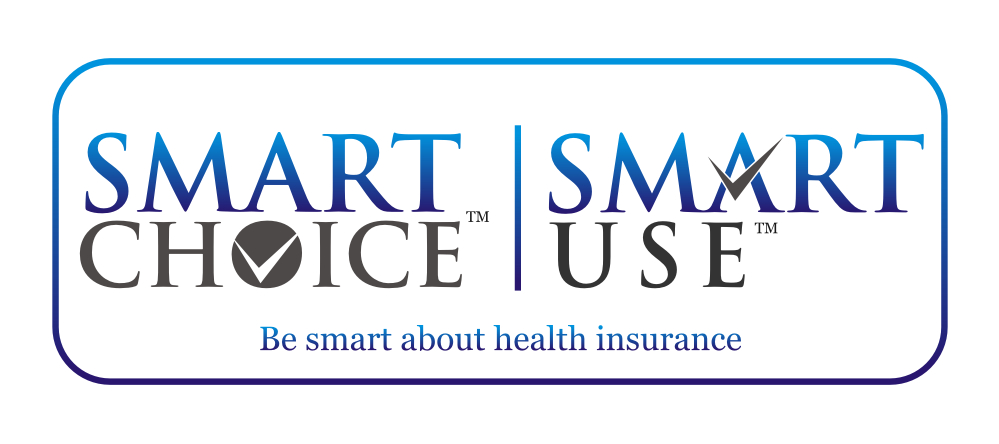
Welcome to the self-paced Smart Choice / Smart Use Health Insurance TM Certified Educator training program. This program will prepare you to conduct consumer programs using the Smart Choice / Smart Use Health Insurance TM modules. The programs are designed, tested and produced by the University of Maryland Extension and University of Delaware Cooperative Extension Health Insurance Literacy Initiative (HILI) team.
- Teacher: Jesse Ketterman
- Teacher: Maggie Wolen
You will be able to re-enroll in the CFA recertification programs at https://register.ext.vt.edu/search/publicCourseAdvancedSearch.do?method=doPaginatedSearch&cspIndex=true&showInternal=false&courseSearch.courseDescriptionKeyword=fertilizer; however, there will be a minimal fee for enrollment ($10) and all testing modules will have to be completed again in the new system, regardless if they have been completed in the previous CFA programs.
Fertilizer Applicator Certification Training (FACT) is a cooperative effort of Virginia Cooperative Extension (VCE), Virginia Department of Agriculture and Consumer Services (VDACS), and the Virginia Department of Conservation and Recreation (DCR).
For more information or to enroll contact: Whitnee Askew, Turf Program Manager, Virginia Tech at waskew@vt.edu
- Instructor: Whitnee Askew
You will be able to re-enroll in the CFA recertification programs at https://register.ext.vt.edu/search/publicCourseAdvancedSearch.do?method=doPaginatedSearch&cspIndex=true&showInternal=false&courseSearch.courseDescriptionKeyword=fertilizer; however, there will be a minimal fee for enrollment ($10) and all testing modules will have to be completed again in the new system, regardless if they have been completed in the previous CFA programs.
Fertilizer Applicator Certification Training (FACT) is a cooperative effort of Virginia Cooperative Extension (VCE), Virginia Department of Agriculture and Consumer Services (VDACS), and the Virginia Department of Conservation and Recreation (DCR).
For more information or to enroll contact: Whitnee Askew, Turf Program Manager, Virginia Tech at waskew@vt.edu
- Teacher: Whitnee Askew

For more information, please contact:
Course Teacher:
Beatriz Nobua-Behrmann, Ph.D
benobua@ucanr.edu
University of California Cooperative Extension – Los Angeles and Orange County
South Coast Research and Extension Center
7601 Irvine Boulevard, Irvine CA 92618
(949) 301-9182 Ext. 1006
or
Jan Gonzales
jggonzales@ucanr.edu
Goldspotted Oak Borer Education and Outreach Program Coordinator
University of California Cooperative Extension - San Diego County
Tel: 858.822.7718
- Teacher: Janis Gonzales
- Teacher: Beatriz Nobua-Behrmann
- Teacher: UC IPM Online Training Support
- Teacher: Cheryl Reynolds
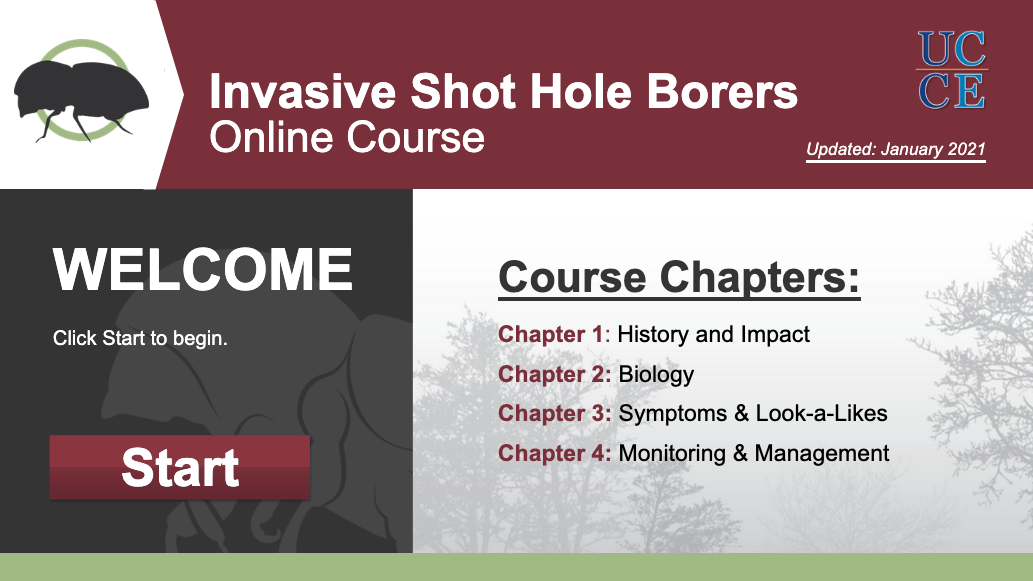

This course must be completed by December 30 of the current year. Download the certificate immediately when you complete the course. You will not be able to retrieve your certificate after December 30.
For more information, please contact:
Course Teacher:
Beatriz Nobua-Behrmann, Ph.D
benobua@ucanr.edu
University of California Cooperative Extension – Los Angeles and Orange County
South Coast Research and Extension Center
7601 Irvine Boulevard, Irvine CA 92618
(949) 301-9182 Ext. 1006
or
Randall Oliver
rdoliver@ucanr.edu
ISHB Communications Coordinator
Tel: 949.301.9182 ext. 1012
Mobile: 949.636.6411
- Teacher: Beatriz Nobua-Behrmann
- Teacher: UC IPM Online Training Support
- Teacher: Cheryl Reynolds
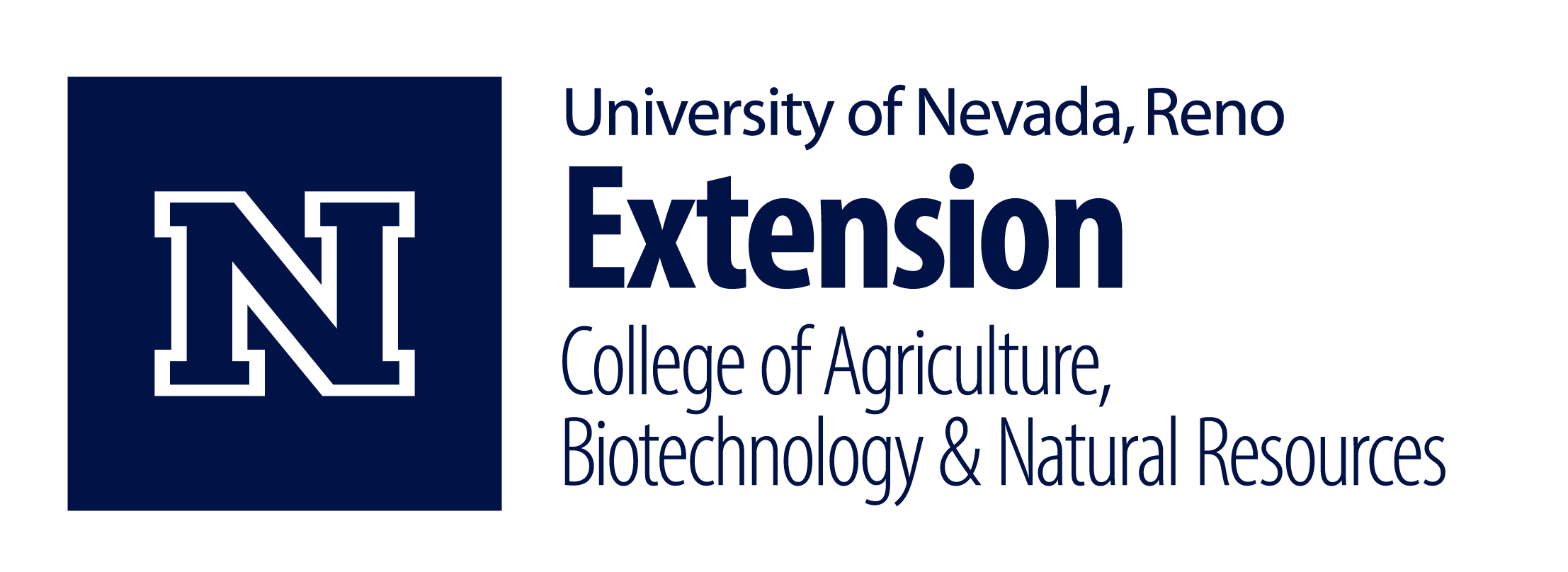

UNR 117 Family Engagement in Early Childhood
This training is designed
to guide educators of young children to establish and maintain open and
cooperative relationships with each child’s family. The course will focus on
effective communication, policies which promote cooperative relationships, and support
for families.
Topics will include
family involvement, conflict with families, conferences and community
resources.
Course fee: $5.99 1-hour
For Technical support email: campushelp@extension.org
Instructor email: childcare@unr.edu
- Teacher: Cathryn Peshlakai
- Teacher: Lisa Whipple
- Teacher: Sarah Wright
Veterans Agricultural Education and Apprenticeship Program in the Southwest
Course Name: Vegetable crop production methods for Yuma
Presented by: Robert Masson, UArizona, Yuma County Cooperative Extension, Asst. Agricultural Agent
Course Overview:
Robert Masson, UArizona, Yuma County Cooperative Extension Asst. Agricultural Agent. Robert will discuss U.S. vegetable production of the 20th and 21st century as well as modern farming considerations. He will also look at Yuma production methods such as Tillage, Seeding and Transplanting, Fertilizers and crop Nutrition, and Irrigation methods.
The course contains video so it requires a computer that can play audio and video.
Contact and technical support: Robert Masson, masson@arizona.edu.
- Teacher: Don Dinwiddie
- Teacher: Robert Masson
Yuma County Cooperative Extension (YCCE) offers Certified Crop Adviser (CCA) accredited courses available online on-demand. The $20 enrollment cost covers admission to all courses made by YCCE that only offer CCA credit. YCCE courses that offer AZDA or CA-DPR IPM certification are not covered with this cost. To access a list of YCCE CCA courses visit our website at www.yumaextension.com
Courses included in this bundle are:
- 2023 SWAG Fertilizer Management
- 2023 SWAG Irrigation
- 2023 SWAG Soil Health
- 24 SWAG Fertilizer
- 24 SWAG Weather and Water
- 24 SWAG Plant Breeding
- 24 SWAG Water and Salt
- 24 Soil Health
- Teacher: Don Dinwiddie
- Teacher: Robert Masson
